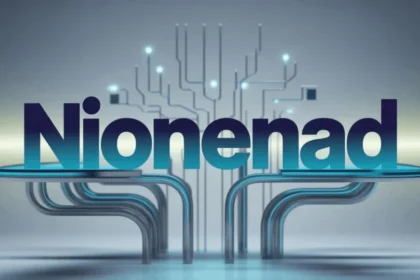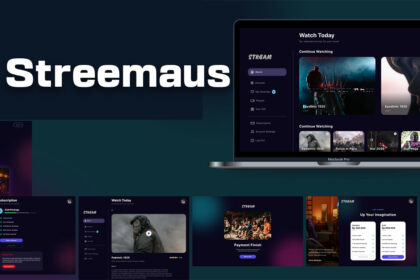In today’s hyper-connected digital economy, secure communication is no longer optional—it is a necessity. Organizations face a growing challenge: how to empower their employees with real-time collaboration tools while ensuring sensitive data remains private, compliant, and under their control. This is where Worldr, an emerging force in secure communication infrastructure, has carved a niche. Worldr positions itself as more than just a messaging or collaboration tool; it is a system designed to help enterprises maintain sovereignty over their data, enhance compliance with global regulations, and foster trust in the digital workplace.
This article explores the origins of Worldr, its technology, the challenges it addresses, and its broader impact on the future of enterprise communication.
The Problem: Communication at the Expense of Security
The rise of platforms like Microsoft Teams, Slack, and Zoom has revolutionized workplace communication. Teams spread across continents can collaborate instantly, sharing documents, brainstorming in real-time, and managing projects seamlessly. However, the speed and convenience of these tools come with risks.
-
Data sovereignty concerns: Multinational companies often grapple with where their communication data is stored. For example, a business headquartered in Europe may find its employees’ chats and files stored on servers in the United States, raising questions about compliance with regulations like GDPR.
-
Third-party access: Many communication platforms rely on cloud infrastructure managed by external vendors, making organizations dependent on providers’ security practices.
-
Compliance challenges: Industries such as finance, healthcare, and defense are subject to strict rules about communication records, monitoring, and data handling. Without the right safeguards, companies risk fines, reputational damage, or breaches of trust.
-
Cybersecurity risks: Messaging platforms are frequent targets for cyberattacks. Unauthorized access to private conversations or shared documents can lead to significant losses.
Worldr emerged in response to these challenges, offering enterprises the tools to take back control.
What is Worldr?
At its core, Worldr is a secure communication layer that integrates with popular collaboration platforms, such as Microsoft Teams, Slack, and WhatsApp, without compromising user experience. Instead of asking employees to abandon the tools they are accustomed to, Worldr provides an overlay of security, compliance, and sovereignty.
The platform emphasizes three main pillars:
-
Data Sovereignty – Organizations retain full ownership and control of their data. Messages, documents, and logs remain within their own servers or chosen cloud infrastructure.
-
Zero Trust Architecture – Worldr ensures no third party, not even the service provider itself, can access communication data without authorization. Encryption and local storage eliminate backdoors.
-
Compliance Enablement – With built-in monitoring, audit trails, and archiving capabilities, Worldr helps businesses meet the stringent demands of regulators.
In short, Worldr enables enterprises to use mainstream collaboration tools while ensuring their sensitive communications are governed by their own rules.
Key Features of Worldr
To understand why organizations are paying attention to Worldr, let’s dive into some of its standout features.
1. On-Premise and Hybrid Options
Worldr allows companies to choose where their communication data resides—whether fully on-premise, in a private cloud, or in a hybrid setup. This is particularly useful for industries where jurisdictional issues are critical.
2. End-to-End Encryption
All messages and files exchanged through Worldr are encrypted. Unlike conventional systems where providers might access data for analytics or storage optimization, Worldr’s zero-trust model blocks even administrators from prying.
3. Integration with Existing Tools
Instead of reinventing the wheel, Worldr integrates directly with tools like Microsoft Teams and Slack. Employees continue using familiar interfaces, while IT departments gain compliance and sovereignty controls in the background.
4. Audit and Compliance Tools
Regulated industries need robust monitoring. Worldr offers secure audit trails, allowing companies to track communications, archive conversations, and generate compliance reports without risking exposure.
5. User-Friendly Experience
For end-users, Worldr minimizes friction. Employees often resist new systems that disrupt workflows, but Worldr’s design philosophy ensures seamless adoption without extensive retraining.
Industries that Benefit from Worldr
Worldr’s value proposition resonates most strongly in industries where trust, security, and compliance are mission-critical.
-
Financial Services: Banks, investment firms, and insurers must comply with regulations such as MiFID II and FINRA, which demand strict record-keeping of communications. Worldr ensures compliance while safeguarding sensitive transactions.
-
Healthcare: Hospitals and clinics handling patient information under HIPAA (in the U.S.) or GDPR (in Europe) can use Worldr to prevent unauthorized access while enabling efficient staff collaboration.
-
Defense and Government: Agencies often need secure communication channels that remain under national jurisdiction. Worldr provides sovereignty without sacrificing usability.
-
Legal Firms: Client-attorney privilege requires absolute confidentiality. Worldr ensures that sensitive legal discussions remain private and controlled.
The Rise of Data Sovereignty in a Globalized World
Worldr’s mission reflects a broader shift in the digital economy: data sovereignty. Governments and organizations are increasingly demanding that sensitive data remain within their jurisdictions and under their control. The debate around data sovereignty has intensified with the rise of cloud computing, where data often crosses borders without users realizing it.
For example, European firms are cautious about U.S.-based cloud providers due to the CLOUD Act, which may allow American authorities to request access to data, even if hosted abroad. Similarly, countries like India and China have introduced strict localization laws. Worldr provides enterprises with the flexibility to comply with such regulations without abandoning modern communication tools.
Challenges and Limitations
While Worldr offers a compelling solution, it is not without challenges.
-
Adoption Resistance: Enterprises accustomed to relying on cloud-native solutions may hesitate to reconfigure infrastructure for data sovereignty.
-
Cost Considerations: Hosting communication data on-premise or in private servers can be more expensive than using public cloud storage.
-
Competition: Established players like Microsoft and Zoom are introducing their own compliance and security features. Worldr must continually innovate to remain a preferred overlay solution.
-
User Education: While Worldr minimizes disruption, IT departments still need to train staff on why enhanced security and compliance matter.
Worldr and the Future of Secure Collaboration
The future of enterprise communication will likely be shaped by a tension between convenience and control. Employees demand fast, intuitive tools, while organizations and regulators demand security, compliance, and sovereignty. Worldr’s approach—enhancing existing platforms rather than replacing them—positions it strategically in this evolving landscape.
In the coming years, we may see:
-
Increased Partnerships: Worldr could expand integrations with more platforms beyond Teams, Slack, and WhatsApp, making it a universal compliance layer.
-
AI-Powered Compliance Tools: Leveraging machine learning to detect compliance risks in real-time while ensuring privacy remains intact.
-
Greater Global Adoption: As data protection laws expand worldwide, Worldr’s relevance will grow across industries and borders.
Conclusion
Worldr represents a new chapter in secure communication for enterprises. By focusing on data sovereignty, zero-trust security, and compliance enablement, it bridges the gap between modern workplace collaboration and the pressing need for control over sensitive information.
In an era where data breaches, compliance fines, and geopolitical concerns dominate headlines, Worldr offers organizations a way forward: empowering employees with the tools they love while ensuring that business-critical communication remains private, compliant, and sovereign.
As digital communication becomes ever more integral to how we work, solutions like Worldr will shape not just how we collaborate, but how we safeguard trust in the digital age.





